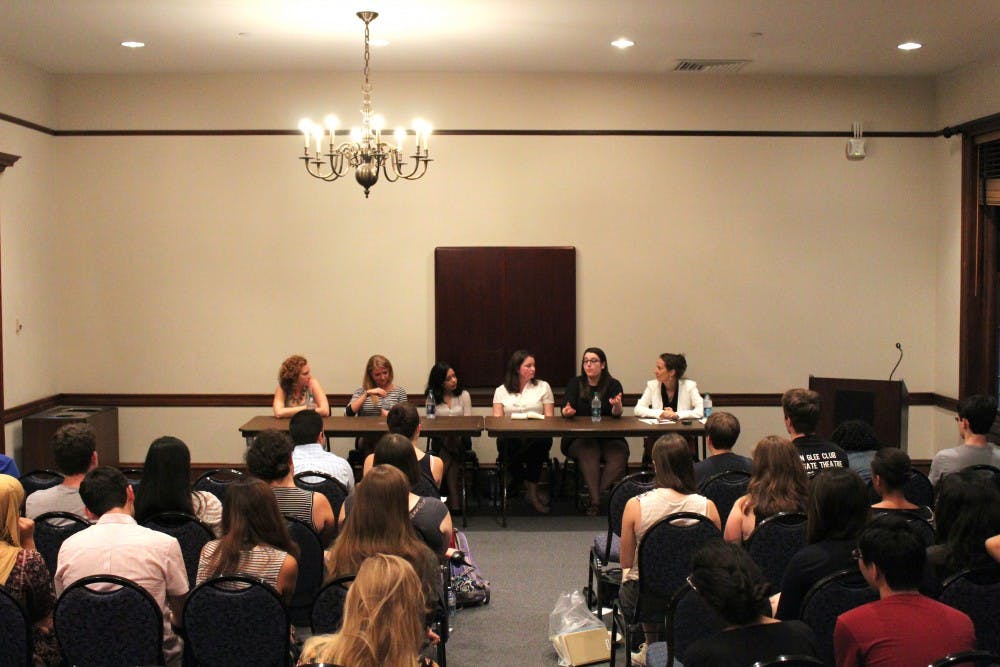"Does sexual harassment factor into women’s ability and motivations to pursue politics?”
This question was just one of many that were explored during last night’s panel on college women in politics. It was hosted by the Government and Politics Association, along with the Penn Women's Center and the Penn Association for Gender Equity — formerly the Penn Consortium for Undergraduate Women — to address the problem of gender imbalance in not only campus political groups but also national politics.
The panelists represented a diverse range of political groups on campus, from Penn Democrats and College Republicans, to Undergraduate Assembly and Penn Political Coalition. They shared personal anecdotes regarding their experiences as women pursuing and achieving higher roles in campus political groups.
“I remember going to the first meeting after I was elected into the UA as a freshman. I looked around the room and saw all these guys in suits. There were barely any girls, and probably five minorities and most of the minorities were male,” said College senior Yessenia Moreno, who heads Penn for Immigrant Rights. “It was surprising because I consider Penn to be very diverse, but in student political groups, it isn’t so much.”
College senior and UA President Jane Meyer also talked about feeling out of place as a woman in a higher political role. “I think there is a vision of what a student government president is supposed to look like, to speak like. And I am unconventional in many ways, so some people doubted me and vocalized those doubts behind the scenes to undermine people’s support of me.”
In the span of an hour, the panelists went on to point out how the double expectations for men and women, the accusations against playing the ‘gender card,’ issues regarding harassment in political groups, among other factors, all contribute to a culture where women feel discouraged from participating in campus politics at a higher level.
Litty Paxton, director of the Penn Women’s Center and the moderator of the panel, discussed how this has phenomenon has bigger implications. “It’s a political pipeline issue. The lack of representation of women in local, state, and federal levels of government is a problem that starts in college,” Paxton said. “And this becomes a problem when, for example, the major national conversations about abortion policies were going on, there wasn’t a woman in the room. The people who are going to be impacted by these huge political decisions are not a part of making those decisions.”
But the bottom line of the panelists’ observations was positive.
Women can and have successfully navigated through these issues to make an impact and to pave a smoother road for the women in future classes — the clear example of this being the panelists themselves.
The panelists also advised the men in the audience on how to be better allies for women.
“For one, do not stop your conversation when a female walks in the room because of what you think a woman can or cannot handle. Be more inclusive,” Wharton senior and Penn Political Coalition co-chair Avivah Hotimsky said.
In closing, the panelists took time to encourage the women in the audience to run for higher positions in political groups on campus and to not let the challenges get in the way, no matter how daunting they seem.









